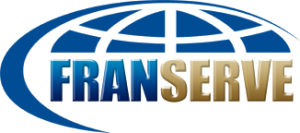Franchising is a powerful business model that revolutionized the world of entrepreneurship. Besides allowing individuals to start their businesses, it provides them with opportunities to leverage the proven success of a recognizable brand and the support of larger and more established companies. Moreover, franchise consulting is a crucial aspect of this business model because it provides expert guidance and support to both franchisors and franchisees. Thanks to these certified professionals, the franchise business model continues to grow and thrive as it offers a lucrative and flexible path to success for aspiring entrepreneurs worldwide.
Whether you’re looking to become a franchisee, a franchisor, or considering franchise consulting as a career path, you’ll want to understand the industry and the franchise business model.
The Difference Between a Business Opportunity and a Franchise Opportunity
Many often confuse a business opportunity with a franchise opportunity. Although they may seem similar, they aren’t exactly the same. A business opportunity involves an individual pursuing a business without receiving a franchisor’s support, training, and guidance. Alternatively, a franchise opportunity often costs more than a business opportunity because it includes trademark licensing, training, operational assistance, and ongoing fees.
The Origins of the Franchise Business Model
Although many consider franchising a relatively modern invention, the franchise business model dates back to ancient China in the middle ages. This ancient distribution model involved local titled landowners granting rights to serfs or peasants to conduct business on the landowner’s domain. The European Common Law eventually adopted the rules governing these rights.
Commercial franchising in the United States started when Benjamin Franklin entered a franchise agreement for printing services in Charlestown, South Carolina, with Thomas Whitmarsh. In the early 1850s, an American inventor and businessman named Isaac M. Singer distributed the Singer sewing machines using the franchising model. However, it wasn’t until a century later when another American businessman, Ray Kroc, popularized the franchise business model after using it to turn his McDonald’s hamburger stand into the most successful fast food corporation in the world.
Today, franchising is a multi-billion-dollar industry in the United States, with thousands of franchises across various sectors, including food service, retail, and personal services. Aside from its significant contribution to the U.S. economy, franchising continues to demonstrate its value as a viable avenue for aspiring individuals seeking financial stability and freedom.
A Closer Look at the Franchise Business Model and the Different Types of Franchising
Franchising refers to a method of distributing products or services. It involves a parent company called a franchisor that sells the rights to franchise their brand to franchisees or individuals looking to sell the franchisor’s products or services. Franchising is classified into two primary franchise business models: product distribution and business format franchises.
- Product Distribution Franchise
In this franchise business model, the franchisor designs and manufactures the product while the franchisee sells it. Unlike a supplier-dealer relationship that may allow the dealer to sell various brands at once, a franchise relationship requires the franchisee to distribute the products exclusively or semi-exclusively. Some popular product distribution franchises include John Deere, Coca-Cola, and Ford Motor Company.
- Business Format Franchise
Besides allowing the franchise to use the franchisor’s brand and trade name for a product, the business format franchise provides access to the product distribution model. For this reason, it’s the most common franchise model. Some well-known examples of business format franchises include Wendy’s, McDonald’s, and Dunkin Donuts.
The Relationship Between a Franchisor and a Franchisee
The franchisor develops and establishes the brand’s recognizable trademark, business model, operating systems, training, and support. On the other hand, the franchisee signs a contract agreeing to operate under the terms specified in the document. In addition, they pay royalty fees and an initial fee for the right to do business under the franchisor’s trade name and systems.
It’s important to note that a franchise acts as the franchise company’s branch. For this reason, the franchisee runs the franchise’s day-to-day operations. Although the franchisee purchases a pre-established brand, they still need to work hard to attract talent, gain loyalty in their market, and grow their franchise business.
While the franchisor and franchisee’s relationship may differ from brand to brand, it should be built upon mutual understanding, respect, and support.
Types of Franchise Ownership
- Single-Unit Franchisee
A single-unit franchisee is a common form of franchise ownership that involves an individual purchasing their first franchise.
- Multi-Unit Franchisee
A multi-unit franchisee is someone who owns more than one franchise unit. In most cases, these multi-owners opened a second, third, or even fourth franchise from the same franchisor after finding success with their first franchise venture.
- Multi-Unit Area Developer
A multi-area developer agrees to develop a specific number of franchise locations within a particular area and period. This franchise ownership is ideal for entrepreneurs who can afford to secure market exclusivity with their franchisors.
- Master Franchisee
Besides being obligated to open a specific number of locations within a specified area and timeline, a master franchisee acts as a middleman for other prospective franchisees and the franchise company. In other words, they sell franchises to aspiring entrepreneurs.
What Franchisees Can Expect from the Franchisor
The Franchise Disclosure Document (FDD)
Franchisors are required to present an FDD, which is a legal document, to franchisees before completing their purchase. The FDD discloses relevant information, including the company’s history, legal relationship, fees, and franchisee obligations.
Financing Options
In some cases, franchisors offer financing programs to assist interested buyers in finding alternative payment methods or a loan servicer.
Location Assistance
Franchisors usually offer guidance and assistance in site selection for franchises that require a physical location. Sometimes, they help the franchisee find a local contractor to ensure the construction of the approved architecture.
Training
Franchisors help franchisees understand how their business runs by providing an operating manual and conducting in-person or online training. The operating manual indicates performance standards, employee roles, and management operations. Furthermore, the training may be a combination of online and in-person training conducted at the franchisor’s corporate headquarters.
Marketing and Advertising
Franchisors help franchisees with marketing and advertising through television, radio ads, email campaigns, or social media. Furthermore, they usually charge the franchisees a marketing fee to cover these costs. They may also provide administrative services, such as human resources and accounting services, for the franchisees.
Support
Franchisees can expect varying levels of support from their franchisors throughout the life of the franchise agreement. Moreover, franchisors typically provide them with access to their network of franchisees, allowing them to get advice or practical solutions to common issues.
Looking for an Expert in Franchise Consulting?
At FranServe, we’ve built the largest organization in the world that connects people to franchise ownership. Contact us today to learn more about what we can do for you.



